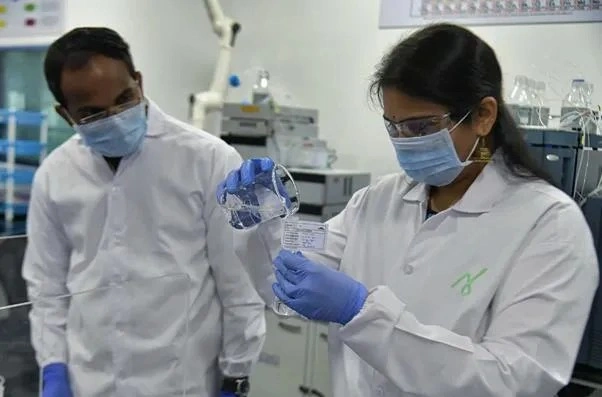What Trends Are Transforming the CDMO Industry in 2025 and Beyond
The CDMO industry (Contract Development and Manufacturing Organization) is evolving rapidly as biotechnology and pharmaceutical companies increasingly rely on outsourcing for drug development and manufacturing.
In 2025 and beyond, several key CDMO industry trends are transforming how these organizations operate and collaborate with companies.
From new service models to digitalization, biologics expansion, sustainability, and partnership structures, the future of CDMO services will be defined by agility and innovation.
1. Embracing CDMO Digital Transformation
Digitalization is a powerful CDMO industry trend and is here to stay. Leading CDMOs are investing in advanced digital tools, from AI-driven analytics to automation, to improve efficiency, quality, and speed.
Sophisticated analytics and modeling are now used to optimize processes and supply chains, often slashing problem-solving times from months to weeks.
Automation and machine learning are also boosting reliability: predictive algorithms can detect equipment issues before failures occur, preventing costly downtime, and robotics ensures more consistent production. Moreover, CDMO digital transformation integrates digital platforms to streamline workflows and share data seamlessly with clients.
Many are piloting AI-driven solutions to accelerate tech transfers and scale-up processes. By linking their systems with companies’ systems, CDMOs can offer real-time visibility into production data, which speeds up decision-making and builds trust.
Not surprisingly, a CDMO’s digital maturity has become a key differentiator. Companies now prioritize CDMO partners equipped with modern data systems and automation capabilities to enable faster, more flexible project execution
2. Biologics and Peptides: The New Growth Frontier
The surge in peptide drugs and other complex therapies is dramatically influencing CDMO services and investments.
This boom in large-molecule therapeutics has made the biologics outsourcing market a major growth driver for CDMOs. Many contract manufacturers are expanding their capabilities (or acquiring specialist firms) in areas like biologics production, viral vector manufacturing, and antibody-drug conjugates to meet this demand.
Peptide therapeutics are also part of this frontier. Companies now seek peptide CDMOs that can handle such specialized products, whether that means a boutique peptide-focused manufacturer or a full-service CDMO with dedicated peptide production lines.
More broadly, the breadth of new modalities (peptides, oligonucleotides, gene therapies, etc.) means CDMOs must be more technically versatile than ever. Those organizations that build strong capabilities in emerging modalities are poised to capture outsized growth.

3. Sustainability Becomes a Core Focus
Under pressure to cut carbon footprints, drug companies now scrutinize the environmental practices of their CDMO partners.
Surveys indicate that about 90% of pharma executives consider a CDMO’s sustainability record an important factor in vendor selection. In other words, sustainability is now a key performance metric in outsourcing, not just a corporate buzzword.
CDMOs are responding by adopting greener technologies and practices. Many are embracing “green chemistry” to reduce waste and energy use, investing in renewable energy, or switching to more sustainable materials.
Embracing sustainability is not just ethically driven – it’s becoming a competitive differentiator. Indeed, pharma outsourcing trends are expected to favor CDMO partnerships that actively support their ESG commitments and carbon-reduction targets.

4. Boutique vs. Full-Service CDMOs: Evolving Service Models
One major CDMO industry trend is the emergence of two CDMO service approaches – specialized “boutique” providers versus large one-stop-shop CDMOs. Industry consolidation via M&A has produced mega-CDMOs offering end-to-end services covering drug development through commercial manufacturing.
This integrated model streamlines projects by reducing handoffs and vendor complexity across development stages. Companies value the efficiency of a single CDMO partner with broad capabilities, but they must also weigh the risks – a sole provider can create supply chain vulnerabilities if problems arise.
Conversely, many smaller CDMOs thrive by focusing on niche areas or specialized technologies. These boutique CDMOs often provide highly attentive service and agility in adapting to client needs.
In fact, CDMOs with unique expertise in high-growth segments (such as cell and gene therapies or highly potent compounds) can command premium pricing for their specialized skills.
Pharmaceutical companies are increasingly striking a balance between these models. Many large companies are trimming their outsourcing roster to a smaller pool of trusted full-service CDMOs for efficiency and control.
At the same time, they still leverage niche providers for specialized needs, recognizing that over-reliance on one partner can heighten risk if a sole supplier hits a snag.
Shaping the Future of CDMO Partnerships
Looking ahead, these CDMO industry trends underscore that CDMOs are becoming more critical than ever to the biopharma ecosystem. The CDMOs that adapt are poised to lead the industry’s next chapter.
Meanwhile, pharma outsourcing as a whole continues to grow: more drug innovators (especially small biotechs) rely on external development and manufacturing expertise, and even large pharma is complementing in-house capabilities with external partners to boost agility and reduce risk.
In this landscape, CDMOs have evolved from back-end suppliers into strategic enablers of pharmaceutical innovation and supply chain resilience. The coming years will likely see these partnerships deepen further, firmly cementing CDMOs as indispensable allies in bringing new therapies to patients.
Neuland Labs continues to evolve with these CDMO industry trends, offering specialized small-molecule and peptide CDMO services as a trusted partner for global pharma. Contact us today for your API project needs.
FAQs
|
|
|
|